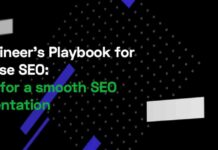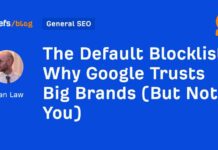Building a personal brand and focusing on brand awareness has become a hot topic in the SEO and social media realms, but this concept is not new; it is simply resurfacing once again.
Following the infamous Panda update in 2011, the importance of building a “brand” gained momentum as Google began prioritizing trusted brands over lesser-known exact match domains. SEO professionals have long recognized the significance of developing their own “personal brand” through avenues such as forums, speaking engagements at conferences, blogging, and authoring books to establish trust and authority within the industry.
In recent years, I have had the opportunity to speak with pioneers in the SEO industry about their early experiences and journeys navigating the ever-evolving landscape of Google over the past twenty-five years. A common theme that emerged from these interviews is the pivotal role that personal branding played in the growth of their SEO agencies or businesses.
Building a brand is a long-term strategy that cannot be easily manipulated, making it a strong signal of trust and reputation. One individual who has successfully leveraged data studies and quality content to establish a reputable personal brand is Eric Enge. His dedication to ethical SEO practices and commitment to providing valuable content led to him being named the Search Personality of the Year in 2016 by the US Search Awards.
However, Eric’s path to success was not without its challenges. In the early days of his career, he achieved significant success by ranking lead generation sites through link schemes and purchasing links. Nevertheless, a manual penalty abruptly halted his profitable income stream. It took over a year of dedicated effort and adherence to a “white hat” approach to overturn the penalty, teaching Eric the importance of ethical SEO practices.
Grateful for a second chance, Eric became a vocal advocate for ethical SEO and demonstrated that producing high-quality content that contributes to the industry is a more sustainable approach than resorting to link buying. Each investment of time and effort led to new opportunities for Eric, showcasing the power of consistent hard work in achieving success.
Eric’s story underscores the importance of giving back to the community and investing in good content. By sharing his knowledge and expertise through writing for platforms like Search Engine Watch and conducting data-driven research studies, Eric was able to attract attention to his brand and establish credibility within the industry.
One of Eric’s notable achievements was co-authoring the fourth edition of “The Art of SEO,” a renowned book in the industry. His involvement in the project came about through a series of networking opportunities and his reputation for producing valuable content. By collaborating with industry leaders like Rand Fishkin, Stephan Spencer, and Jessie Stricchiola, Eric contributed to a resource that has benefitted countless individuals in the SEO community.
As we navigate the evolving landscape of SEO and adapt to the introduction of AI, content production remains a vital aspect of building trust and credibility. While AI technology may impact certain types of content production, efforts such as thought leadership, interviews, data studies, and experiments are areas where individuals can establish credibility and resist the automation of content creation.
In conclusion, the journey of building a personal brand and establishing credibility in the SEO industry requires dedication, hard work, and a commitment to ethical practices. By investing in good content, giving back to the community, and consistently delivering value, individuals can position themselves as trusted authorities in the field. Thank you to Eric Enge for sharing his insights and experiences on the importance of personal branding in SEO.

















![Ultimate Social Media Content Calendar Template for Marketers [Free Download] news-28072024-183753](https://guestpostingforum.com/wp-content/uploads/2024/07/news-28072024-183753-100x70.jpg)
![AI & Automation in SEO: Boost Efficiency and Increase Profits [Webinar] news-30092024-132957](https://guestpostingforum.com/wp-content/uploads/2024/09/news-30092024-132957-100x70.jpg)




